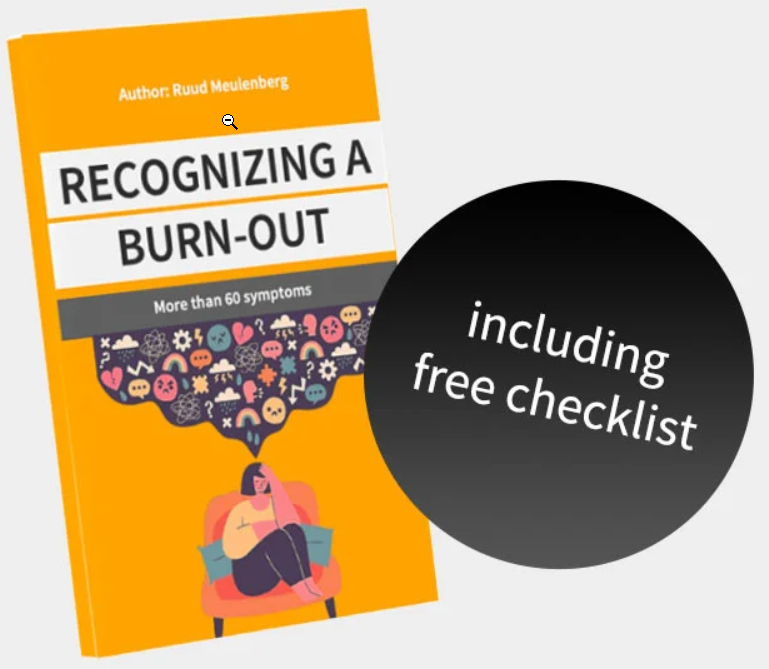In today’s fast-paced world, stress has become a common experience for many people. Stress can impact our daily lives due to work demands, financial pressures, or personal challenges. The relationship between stress and overeating has been widely studied, with researchers seeking to understand how these issues are interconnected. This article will overview the relationship between stress and overeating and explore strategies to manage both issues effectively.
What is the Connection Between Stress and Overeating?
Mental strain and overconsumption are connected, leading to poor food choices and overeating. Elevated levels of stress hormones, such as cortisol and adrenaline, during periods of mental tension, can intensify cravings for high-fat and high-sugar foods. This creates a cycle where overeating contributes to increased stress. Examples illustrating the connection between the two are provided below.
- Emotional Eating: This occurs when individuals turn to food to cope with negative emotions like anxiety, depression, or loneliness, often triggered by stress. In these situations, individuals may overeat, regardless of hunger, resulting in excessive food consumption.
- Cravings: Stress prompts the release of cortisol, increasing appetite and fostering cravings for high-sugar and fatty foods. This is because cortisol elicits a pleasurable and comforting response in the brain, which is satisfied by consuming such foods.
Choose the help that suits you.
Our dedicated team of experts is here to guide and support you in the most difficult times of your life.
- Disrupted Sleep: Mental tension can disturb sleep patterns, contributing to overeating. Sleep deprivation raises ghrelin [1], the hunger hormone, while decreasing leptin, the satiety hormone, leading to heightened appetite and food cravings.
- Changes in Metabolism: Conditions like burnout can lead to metabolism changes, contributing to weight gain and overeating. Chronic burnout, for instance, may lead to insulin resistance, elevating the risk of developing type 2 diabetes.
How Stress Affects Eating Habits
Stress can impact appetite and eating patterns in various ways.
- Appetite: Some people experience an increased appetite when stressed, while others may have a decreased appetite. Mental pressure triggers cravings for high-fat, high-sugar, or salty foods, which can lead to overeating and weight gain. On the other hand, it might result in skipped meals or insufficient food intake, causing weight loss or nutrient deficiencies.
- Hormones: Cortisol, the hormone our body releases when stressed, affects our appetite by increasing our hunger levels. It also affects our metabolism and the way our body stores fat, which can contribute to weight gain. The hormone ghrelin, which stimulates hunger, has also been found to increase during stress.
- Psychological: Mental strain can trigger emotional eating, which is eating in response to emotions rather than hunger or fullness. This sets off a cycle of negative emotions and unhealthy eating habits.
- Digestion: When stressed, our bodies enter a “fight or flight” response, which slows digestion. It also affects the balance of bacteria in our gut, which can impact our overall health and well-being.
Health Risks Associated with Overeating
There are a multitude of health risks associated with overeating.
Obesity
Overeating can lead to weight gain, increasing the risk of obesity. Obesity can cause various health problems, such as heart disease, type 2 diabetes, high blood pressure, stroke, and some cancers.
Digestive Issues
Overeating may lead to digestive issues, including bloating, gas, indigestion, heartburn, and constipation. These problems can be uncomfortable and painful, impacting the overall quality of life.
Insulin Resistance
Eating out of control can increase blood sugar levels, leading to insulin resistance. This is a condition where the body’s cells don’t respond to insulin correctly. Insulin resistance can lead to type 2 diabetes, which can cause various health problems.
Poor Sleep Quality
Eating a large meal before bedtime can cause discomfort and affect sleep quality, leading to fatigue and low energy levels during the day.
Mental Health Problems
Losing control of your eating habits can significantly impact your mental well-being, contributing to conditions such as depression, anxiety, diminished self-esteem, and heightened stress levels. Unhealthy eating habits not only influence physical health but also play a pivotal role in shaping emotional and psychological states.
Cardiovascular Diseases
Cardiovascular diseases resulting from excessive eating include heart disease, high blood pressure, and stroke. Excessive consumption of unhealthy fats and sugars leads to plaque build-up in the arteries, increasing the risk of heart attacks and strokes.
Kidney Disease
This happens when the kidneys work harder to filter out excess nutrients and waste products from the body.
Reduced Fertility
In women, excess body weight can lead to hormonal imbalances that can affect ovulation, while in men, it can lead to a decrease in testosterone levels, affecting sperm production.
Coping With Stress Without Turning to Food
Luckily, there are many ways to cope with mental strain without choosing to overeat.
Exercise
When you exercise, your body releases endorphins, natural chemicals that help reduce pressure and anxiety.
Journaling
Writing in a journal can help you process your emotions. When you write down your thoughts and feelings, you can gain clarity and perspective on your problems.

Meditation
Meditation is a mindfulness practice that helps you focus on the present moment and reduce mental pressure. You can meditate anywhere, anytime, and it doesn’t require any special equipment or training.
Deep Breathing
Take a slow, deep breath through your nose, hold it for a few seconds, and then exhale slowly through your mouth.
Social Support
Talking to friends or family will help you feel less alone and more supported. If you’re stressed, contact someone you trust and discuss your feelings.
Engaging in Hobbies
Participating in activities such as reading, gardening, or playing music can contribute to relaxation.
Tips to Reduce Overeating
Here are some tips to lessen food overindulgence:
- Eat Mindfully: Consuming meals slowly allows your brain to catch up with your stomach, promoting a sense of fullness and potentially reducing overall calorie intake.
- Stay Hydrated: Drinking water before and during meals aids in achieving a quicker feeling of fullness, preventing excessive eating. Adequate hydration also helps differentiate between thirst and hunger.
- Opt for Smaller Plates: Using smaller plates creates an illusion of larger portions, assisting in moderating food consumption.
- Minimize Distractions: Avoiding distractions like TV or phone usage while eating enhances awareness of food intake, reducing the likelihood of overeating.
- Plan Your Meals: Pre-planning meals facilitates healthier choices and encourages portion control, aiding in weight management.
- Prioritise Adequate Sleep: Sufficient sleep regulates appetite and cravings, contributing to better control over eating habits.
- Embrace Mindful Eating: Paying attention to each bite and fully engaging in the eating experience promotes satisfaction with smaller portions.
- Keep Temptations Away: For those prone to overeating specific foods, keeping them out of sight or not purchasing them helps resist temptation.
Where to Seek Assistance for Overeating Issues
If you’re grappling with concerns related to food, numerous avenues offer assistance. Consider initiating a conversation with your doctor or a registered dietitian as a primary step. Your healthcare provider can help determine whether any underlying medical conditions contribute to your challenges and may refer you to a registered dietitian for personalised guidance on cultivating a healthy eating plan.

Download our
free e-book
Recognizing a burnout
(more than 60 symptoms)
Alternatively, seek out a stress coach, therapist or counsellor. Many people who struggle with excessive eating find talking to a mental health professional helpful. All these resources will help you identify the root causes of your overeating and help develop relevant and appropriate coping strategies.
Conclusion
It’s crucial to recognize that overeating is a widespread occurrence and does not dictate your inherent worth. Cultivating self-compassion and seeking support from others can significantly diminish the negative emotions associated with overeating.
Stress and overeating often form a problematic duo that can detrimentally impact both physical and mental well-being. While turning to food for comfort in times of stress might seem tempting, prioritising healthy stress management techniques is vital to curbing the impulse to overeat.
Incorporating mindfulness practices, adopting healthier eating habits, and, when needed, seeking professional assistance are effective strategies for addressing the intertwined issues of stress and overeating.
Stress & burnout coaching; for 100% recovery!
Reducing stress and recovering from burnout is simply incredibly difficult. The coaches at Meulenberg Training & Coaching understand exactly what you are going through and know how tough it can be. They have often experienced it themselves! With their years of experience and expertise, they are ready to help you step by step toward a full recovery. The results of our one-on-one coaching and absenteeism training will benefit you for a lifetime!
FAQ
References
- Wikipedia.org – Ghreline – Found on 08/07/2024
Link to a page on wikipedia.org






